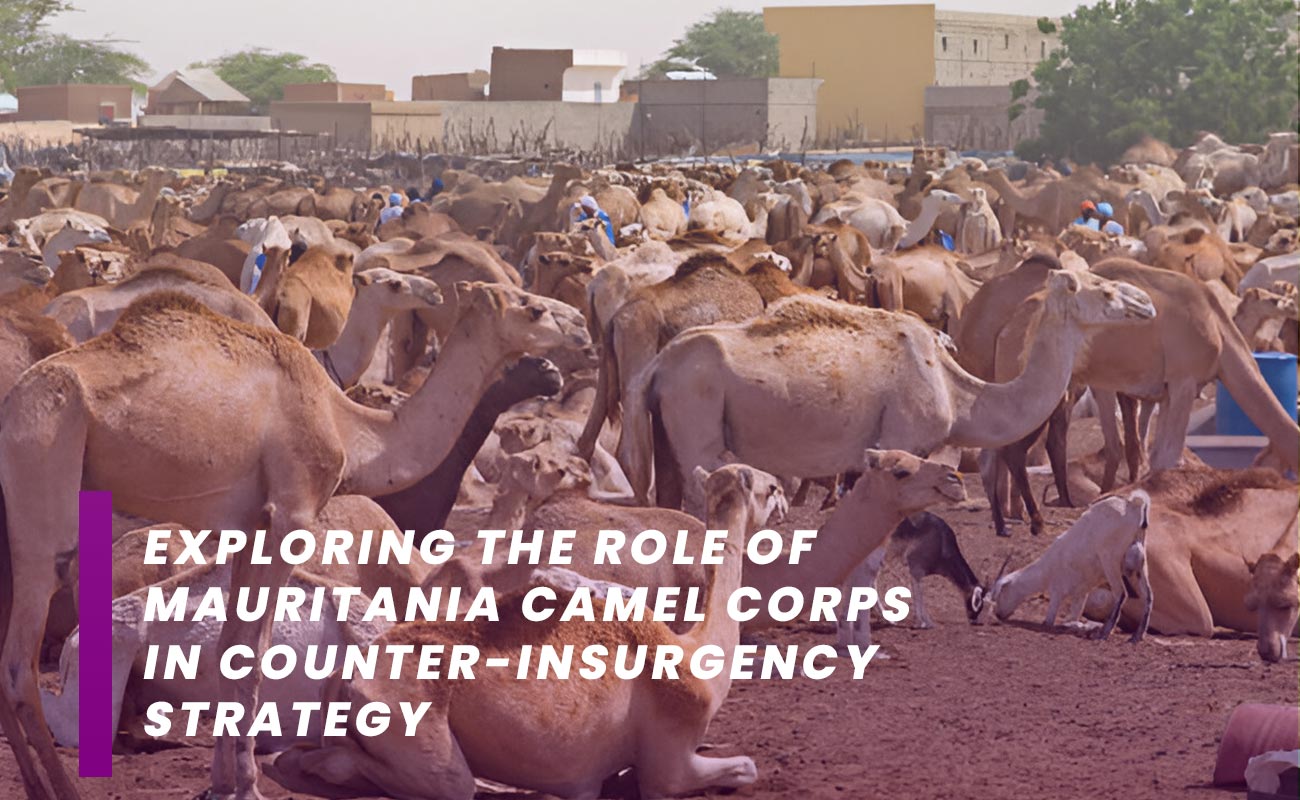
By Adam Abass
The Sahel region is being challenged with a multi-dimensional security crisis. Most countries in the region are battling the presence of violent Islamist terror groups, organized criminal organisation, armed banditry, and inter-communal clashes among other plethora security challenges, which have made the region a hub for violent and criminal activities. Countries in the region are also grappling with political instability from the rise of military coups, to authoritarian regimes, which have been accumulating tension in the past few years.
Countries in the region such as Mali, Niger, Chad, and Burkina Faso are faced with a growing presence of terrorist groups, with increasing attacks and fatalities. However, Mauritania a Sahelian country has distinguished itself by adopting a nuanced approach in combating and countering the spread of the violent group into its borders and has not experienced a single terrorist attack since 2011. The Mauritanian counter-terrorism strategy has significantly focused on strengthening its national army capabilities, with the provision of modern weapons and improved welfare of the armed forces to boost morale, and most importantly has tapped into local knowledge and solution to a global problem, with the revamp of a thousand-year-old camel policing strategy.
Research studies into the fight against terrorism in the Sahel have placed vital priority on the need to develop effective local intelligence gathering and establish a strong state presence in rural communities that are prone and vulnerable to armed group incursion. This recommendation has largely been ignored by most Sahelian states. However, Mauritania has proven this strategy to be effective with the creation of Camel Corps known as Maheri National Guard, which has been playing a pivotal role in Mauritanian Counter-Insurgency strategy, and crucial in its implementation.
The Maheri National Guards (Camel Corps), which is part of the broader Mauritanian counter-insurgency strategy are recruited from the local nomadic population, with high-level knowledge of the desert area and the borderland. A critical part of the operation is the use of camel, which is capable of travelling long distance in the hot desert. The national guards are responsible for patrolling the extensive border with the fragile Malian state, seeking for intelligence from the local nomadic populations in their settlement, and also serving as a symbol of state presence to the nomadic population, which are mostly deprived of state developmental policies in the region. In addition, the Mehari national guard fills the gap of state absence by providing essential support (including healthcare) and maintaining regular contacts with locals.
The intelligence gathering of Camel Corps from the local population involves patrolling the desert area and the border with Mali, seeking information about suspicious activities such as strange groups crossing the border, from the nomadic population who are either grazing their cattle or living in the settlement. They also perform undercover operations in strategic locations like the market areas where they look out for any suspicious large purchases of food supplies or fuel, which is unusual for an individual purchase or household. Equally, part of the larger responsibility of the camel corps is the raising of awareness among the local populations to speak up when suspicious of strange movement or activities, and if any malicious activities are detected through intelligence gathered from the locals by the Camel Corps, intel are directed to the central government for the proper deployment of counter-terrorism forces.
On the other hand, the camel corps serves as a symbol of state presence in the rural nomadic communities. Many rural communities in the Sahel, consistently experience a lack of state presence, leaving them vulnerable to incursion by armed groups, and susceptible to violent attacks. Similarly, the absence of state presence further amplifies grievances and resentment among the local population towards the government, leading to a loss of connection and belonging to the state. These fault lines are exploited by jihadist groups to drive recruitment or collaboration of the local communities with jihadist. To thwart this strategy adopted by jihadist groups preying on the lack of state presence and resentment towards the state, the Mauritanian camel corps continues to fill the gap of state absent.
The camel corps provide public and social services to the local nomadic populations such as public transport, access to clean water, and provision of healthcare system, and in the case of conflict or clashes between communities on domestic or tribal lines, they intervene to mediate such conflict not to spiral beyond control. All of these efforts help to build trust between the State and local communities, helping to win their heart and minds, and to gather information about activities in the border area.
The Camel Corps plays a pivotal role in Mauritanian’s counter-insurgency strategy by effectively blocking all potential entry points for jihadist infiltration into the communities. Thus, preventing their recruitment or collaborations with locals. This success is evident in Mauritanian’s low ranking in the Global Terrorism Index from 2020 to 2024 compared to the high rate of terrorism in most Sahelian countries.
In conclusion, Sahelian Countries affected by terrorism can benefit from adopting the Mauritanian Strategy. Given the region’s shared challenges, adopting similar approaches could yield comparable results. Ultimately, it falls upon the respective Sahelian government to prioritize good governance, maintain State presence by providing public services and security, and address grievances in exposed local communities. These approaches have demonstrated its effectiveness as a deterrent against the expansion of Jihadist Groups.
